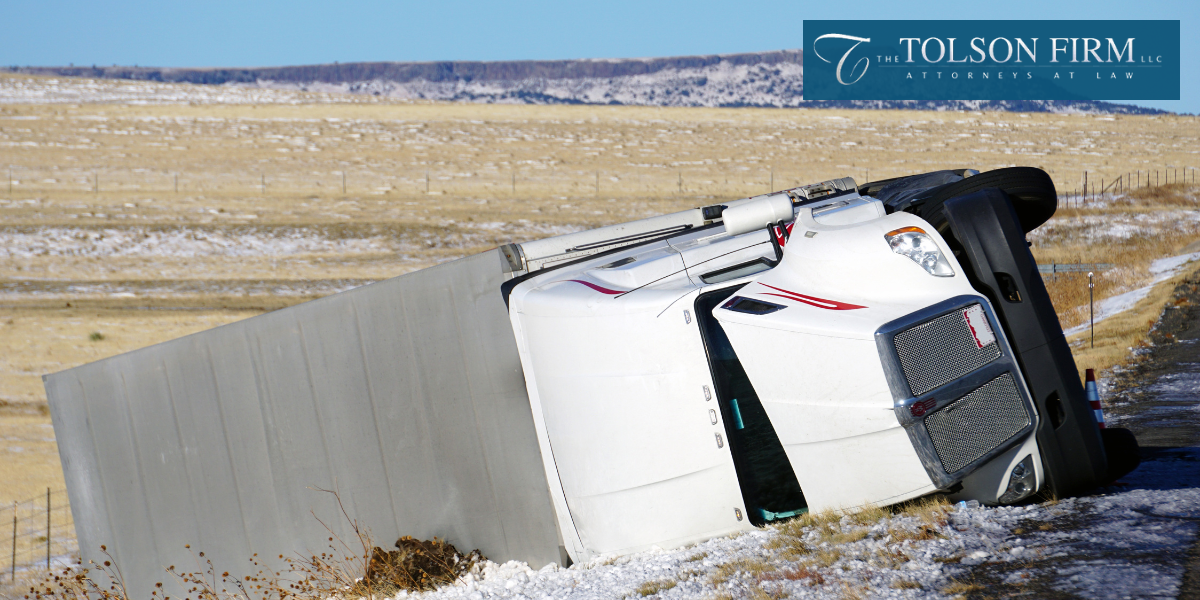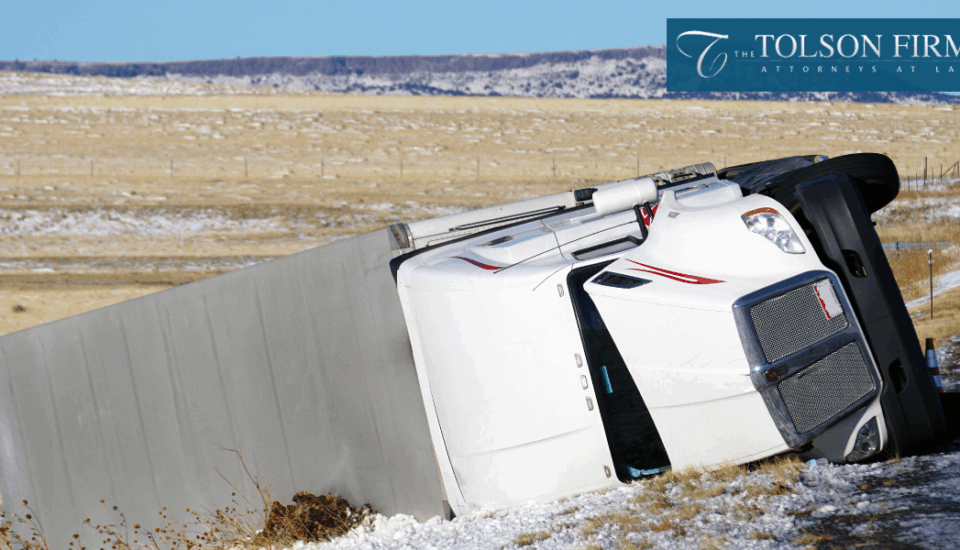|
|
Last
Modified on
Jun 11, 2025
The city of Atlanta functions as a major transportation center where commercial trucks move goods throughout Georgia and the Southeast on major highways and local roads. The dense traffic patterns, advanced intersections, and older infrastructure create a mix of dangerous Atlanta roadways for commercial trucking accidents.
Educate Yourself on Atlanta’s Riskiest Roads to Stay as Vigilant as Possible
Passenger vehicles that crash into large trucks often suffer devastating consequences, including serious injuries, deaths, and extensive property destruction. Identifying Atlanta roads with the greatest dangers enables drivers to remain vigilant and enhance their safety. As a driver, it is important to be aware of which Atlanta metro routes present the highest risk for commercial trucking accidents so that you can stay safe.
I-285: Atlanta’s Perimeter Highway
Atlanta’s Interstate 285 is a crucial route for trucking and residents, but it can become quite dangerous at any given moment. The combination of heavy traffic volume, complex interchanges, and frequent congestion makes I-285 especially dangerous for commercial truck drivers and other motorists. Many of Atlanta’s major roadways and intersections are known to create higher risks of accidents involving large trucks.
According to the American Transportation Research Institute’s 2024 report, three interchanges along I-285 rank among the top 10 worst trucking bottlenecks in the U.S. These include I-285 at I-85 (North) (ranked #5), I-20 at I-285 (West) (#6), and I-285 at SR 400 (#9.)
I-75/I-85 Downtown Connector
Atlanta’s Downtown Connector stands as one of its busiest roadways, where I-75 and I-85 merge through the city center. The 7.5-mile segment experiences peak traffic flow, with many vehicles passing through each day. A survey of 3,004 drivers revealed that Atlanta’s Downtown Connector holds the position of the top rush hour pathway in Georgia.
The combination of heavy traffic along with narrow roadways and small shoulders creates hazardous conditions that raise accident risks, particularly for big trucks. This critical corridor faces increased danger due to the constant stop-and-go traffic patterns and sudden lane changes.
I-20
The Interstate 20 corridor serves as an essential east-west passage through Atlanta while supporting heavy commercial truck traffic that moves goods throughout Georgia and farther. The aging infrastructure and narrow lanes of I-20, alongside regular construction zones, create multiple safety hazards despite its necessity for freight transportation.
Bumpy roads, old traffic signs, and congested zones make accidents more likely for drivers. Safe travel through this corridor requires constant alertness because minor mistakes or mechanical problems can result in catastrophic accidents.
Local Roads With Heavy Truck Traffic
Substantial commercial truck traffic on several local roads outside of Atlanta’s interstates results in elevated accident risks. Fulton Industrial Boulevard functions as a primary industrial route that handles substantial freight traffic.
Buford Highway and Moreland Avenue serve as main routes for heavy truck traffic, which frequently intersects with commuter vehicles, pedestrians, and cyclists. The combination of numerous intersections and multiple vehicle types sharing these pathways leads to frequent stops and raises the risk of severe collisions with commercial trucks.

FAQs
Q: What Makes Certain Atlanta Roads Especially Dangerous for Trucking?
A: Truckers on specific Atlanta roads face heightened hazards because of intense traffic density, narrow pathways, deteriorating structures, and intricate interchanges. The routes I-285, I-75/I-85, and I-20 often face traffic buildup points while drivers encounter sudden lane merges and disruptive stop-and-go flows.
In some places, trucks must share the road with smaller vehicles, pedestrians, and cyclists. The combination of these elements increases the risk of severe or deadly trucking accidents.
Q: Why Do Bottlenecks Increase Truck Accident Risks?
A: Traffic bottlenecks force trucks to repeatedly stop and start while merging within limited areas. Commercial vehicles require extended braking and turning distances compared to passenger vehicles, which increases their risk of collision during unexpected slowdowns or lane switches.
Bottlenecks increase driver stress while potentially causing them to make dangerous choices or experience exhaustion. These elements create a higher probability of rear-end collisions, sideswipes, and multi-vehicle pileups on busy roads.
Q: How Can Passenger Vehicles Stay Safe Around Trucks?
A: Passenger vehicle drivers must steer clear of trucks’ blind spots and ensure sufficient space for truck maneuvers while merging and passing. Drivers must communicate with clear signals and understand that trucks require extended distances to come to a stop.
Maintain a safe distance when passing trucks and be patient in congested traffic situations. The risk of truck-related crashes on Atlanta’s busy roads decreases with proper defensive driving and heightened awareness.
Q: What Should I Do If I’m Injured in a Truck Accident?
A: It’s essential to receive medical attention right after a truck accident, regardless of how minor your injuries appear. Capture images of the crash scene while gathering witness contact information and obtaining a police report. Before speaking with an insurance company or discussing who is at fault, make sure you consult with a lawyer. Prompt action enables you to maintain your legal rights and safeguard critical evidence for your personal injury claim.
Q: Are Trucking Companies Responsible for Accidents on Dangerous Roads?
A: Trucking companies must answer for their drivers’ actions and operational procedures that result in accidents, regardless of dangerous road conditions. The company’s negligence could involve inadequate driver training, cargo overloading, and maintenance oversight, as well as pressuring drivers with unrealistic delivery deadlines.
Although road conditions affect safety, companies must maintain safe operations within the legal framework. Liability assessment demands an examination of multiple elements, such as how drivers behave together with company procedures.
Contact an Atlanta Truck Accident Lawyer
The city of Atlanta’s busiest roadways and industrial routes create significant dangers for both professional truck drivers and regular motorists. Accidents occurring on perilous highways, including I-285, I-75/I-85, I-20, and Fulton Industrial Boulevard, result in life-altering consequences. The Tolson Firm, LLC, provides legal assistance if you or your family member suffers injuries from a truck accident.
Our seasoned legal team comprehends the intricacies of trucking accidents, and we pledge to pursue accountability from negligent drivers, companies, and insurers. We diligently fight to ensure clients receive fair payment for their medical expenses, lost income, and future recovery requirements. Reach out to The Tolson Firm, LLC, now to arrange a consultation and explore your legal choices.





